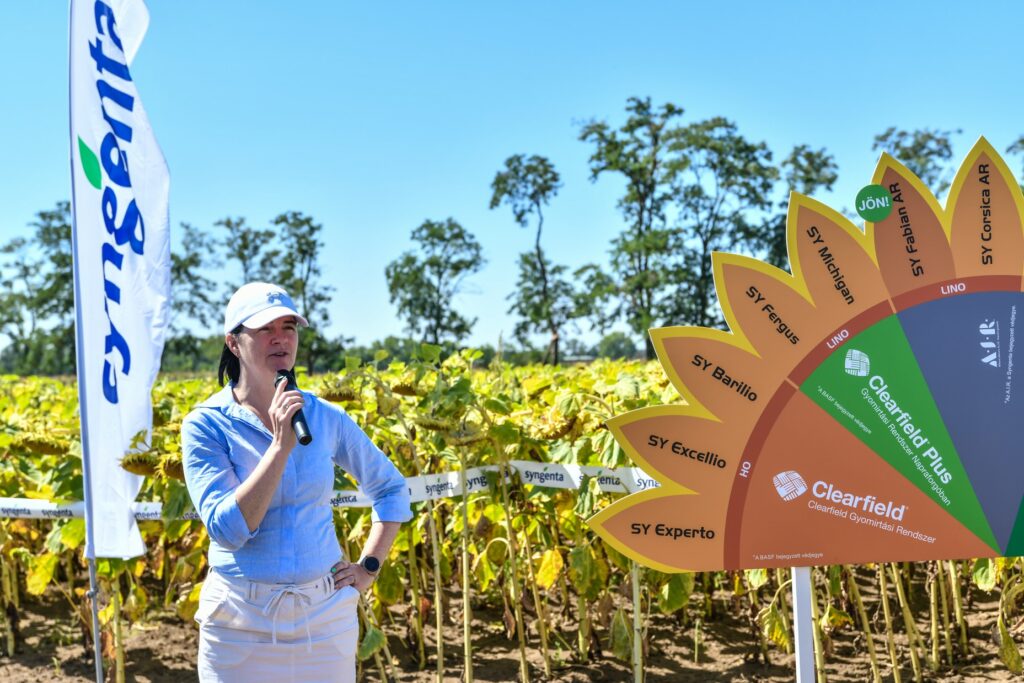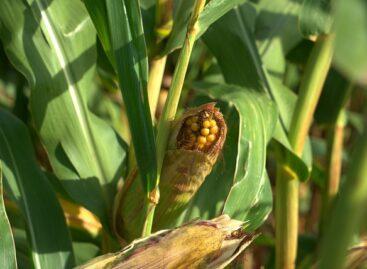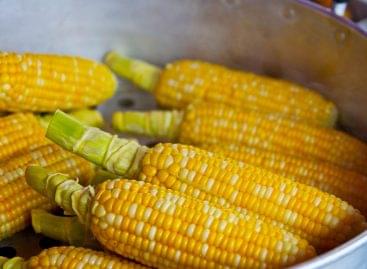New challenges, innovative answers in sunflower and corn cultivation
Hungarian agriculture has reached a crossroads: the effects of climate change, economic pressure, and the withdrawal of plant protection active ingredients are collectively transforming the future of crop production. At the Crop-EX 2025 event in Zelemér, Syngenta presented innovations in the field of plant protection and seeds that help farmers strengthen their competitiveness.
New record in sunflower sowing area, corn decreases
A total of 746,000 hectares were sown with sunflower in 2025, according to data from the National Chamber of Agriculture, while Syngenta estimates that the area under oil sunflower is 730,000 hectares. The growth experienced over the years further strengthens the role of sunflower in the domestic crop structure, as the plant’s deep-rooted root system and better stress tolerance provide producers with more stable profitability. In the corn area, sowing is decreasing in line with previous expectations: in 2025, the corn sowing area will be between 750-800 thousand hectares. According to analysts, the crop will stabilize at around 650 thousand hectares nationwide in the future. The economics of corn production have improved somewhat in the recent period, but crop security has become a crucial issue. The exposure of corn has increased and in some areas even achieving lower yield levels is a challenge for farmers.
This year is a difficult year for farmers, burdened by extreme weather
This year’s season started with extreme weather, the sowing of sunflower and corn was followed by a longer, cold and rainy period, which led to delayed emergence, so the plants were further exposed to pests. Then the hot, low-precipitation period mainly affected corn, but also sunflowers. The July rainfall brought some relief, but due to the weather challenges, the crop outlook is not very promising, with drier areas comparing this year to the severely drought-stricken year of 2022. Crop prices are at a relatively good level, but the forecasted crop level is low, which does not make the situation easier for producers.
According to Syngenta, in the case of extremes, the emphasis should be on stress management in the future to minimize potential losses. Fine-tuning agrotechnology will become even more important, with a special focus on water conservation, while biological solutions and digital decision-support tools can also help.
Related news
Corn 2026: soil moisture and hybrid choice may decide the season
🎧 Hallgasd a cikket: Lejátszás Szünet Folytatás Leállítás Nyelv: Auto…
Read more >Knowledge-based responses to challenges: Syngenta supports farmers with complex solutions
🎧 Hallgasd a cikket: Lejátszás Szünet Folytatás Leállítás Nyelv: Auto…
Read more >Related news
II. Green Gastronomy – Marketing Communication Workshop organized by the MMSZ HoReCa and Green Section
🎧 Hallgasd a cikket: Lejátszás Szünet Folytatás Leállítás Nyelv: Auto…
Read more >Retail sales of organic products in Hungary increased by 13.9% – our country is the second fastest growing market in the European Union
🎧 Hallgasd a cikket: Lejátszás Szünet Folytatás Leállítás Nyelv: Auto…
Read more >









